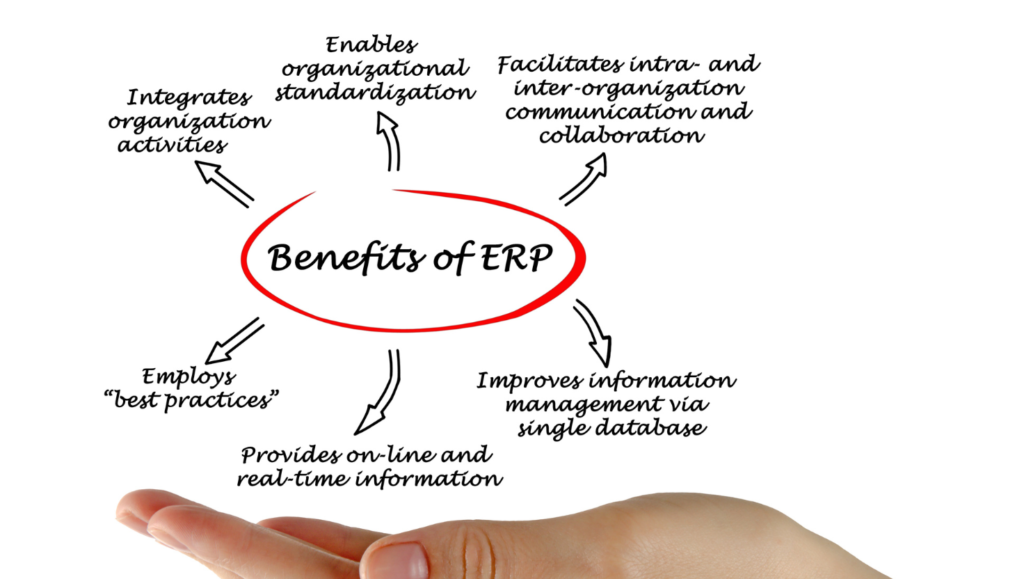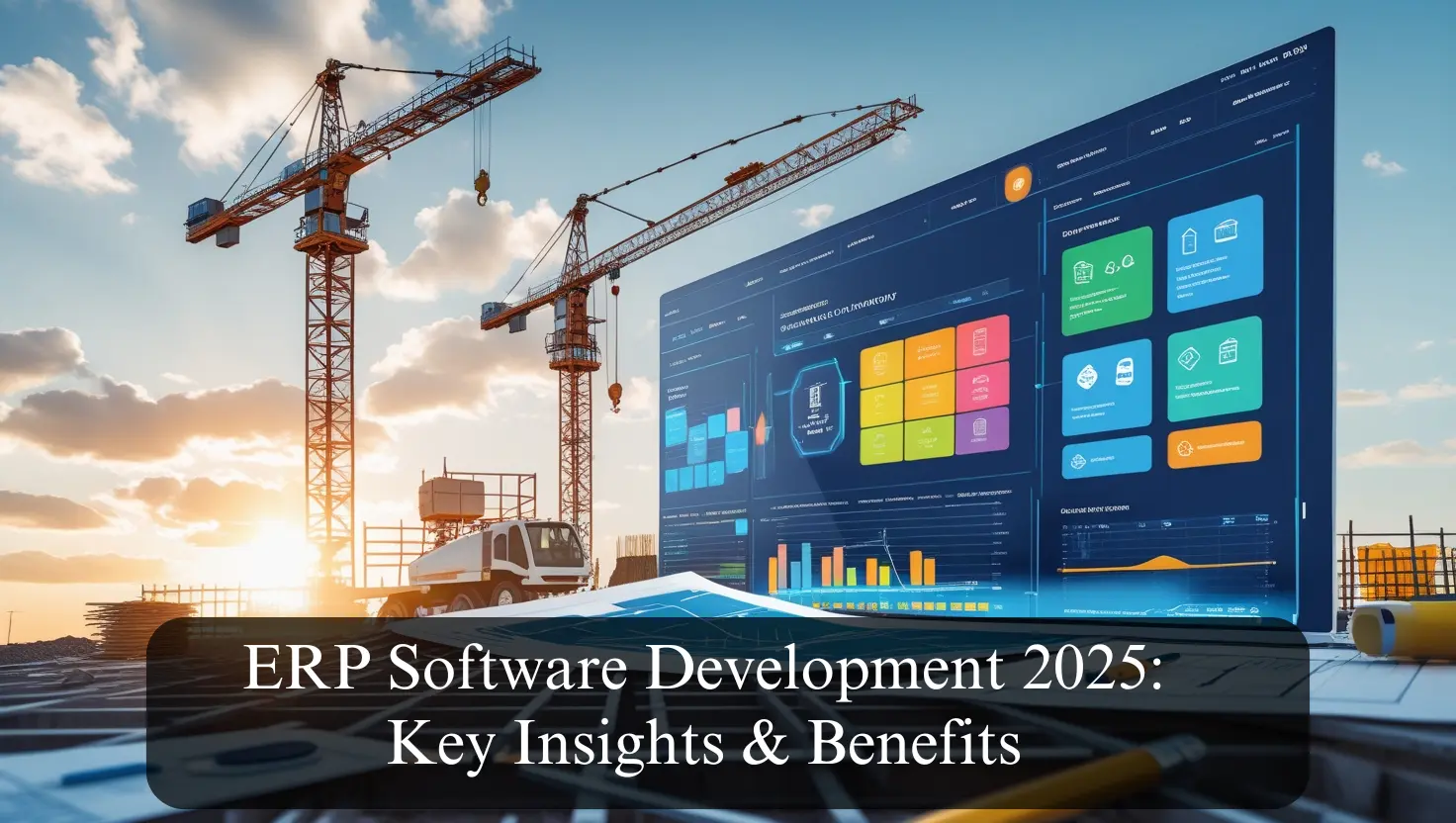In order to remain in competition in the current corporate world, businesses need to evolve and polish their processes. That is precisely the function of ERP software development. An ERP (Enterprise Resource Planning) system refers to an integrated system that helps an organization in the effective management of its resources by streamlining processes and providing insights in real-time. This article will discuss the specifics of ERP software development as well as the advantages of bespoke systems and how to select the best ERP software development company for your requirements.
What Is ERP Software Development ?
ERP software development entails a custom software suite engineering to manage and integrate different business functions of an entire organization. It covers range of functions such as finance and accounting, procurement, HR, manufacturing operations, and supply chain management. Unlike general solutions, which off-the-shelf products tend to be, tailored ERP software development centers on the creation of a system that meets the needs of a company’s operations.
Today’s ERP systems are much more than data repositories. They incorporate sophisticated tools and techniques including artificial intelligence (AI), cloud computing, Big Data, and the Internet of Things (IoT). These technologies allow companies to better manage resources and increase productivity and competitiveness.
Pros of Developing ERP Software
Investing in a custom ERP software development has a case for why organizations would find it beneficial:
1. Improved Operational Efficiency
ERP systems enable integration of various functions into a single platform ERP, thus minimizing human error and manual processes. Additionally, routine tasks are often automated which streamlined operations, simplified, and improved effectiveness.
2. Better Cross-Departmental Collaboration
Eliminating information silos is possible by allowing departments to share information through a single, centralized database.
3. Enhanced Organizational Agility
The powerful, fast data analysis aids managers in making informed decisions in a timely manner. In turn improving the capacity of the organization as a whole.
4. Automatic Regulatory Compliance
Organizations set industry standards that are there to be adhered to. ERP systems are designed to observe compliance to such regulations without the necessity of manual action.
5. Flexibility
The system can be tailored to suit the needs of the business which can become more complex over time. This is essential to ensuring that ERP solutions do not become obsolete.
6. Lower Total Cost of Ownership
Although lacking one-off purchases and subscriptions might seem beneficial in cash flow, long-term off-the-shelf ERP solutions are much more efficient when it comes to operational spending.

Cons of Developing ERP Software
Some of the obstacles with developing ERP software include:
1. Significant Initial Investment
A lot of money is spent in the creation and deployment of a custom ERP solution which creates issues around ROI.
2. Complex Integration
New ERP systems are not nuanced enough and may not incorporate the existing processes and tools, which can be very tricky and could need some unique skills.
3. Time-Consuming
Building an ERP solution from the ground up will almost always exceed the effort required to implement an existing solution.
4. Change Management
System transitions tend to face resistance from employees, particularly when workflow boundaries are fundamentally altered.
The ERP Software Development Process
If an organization is thinking about investing in ERP, it is necessary to learn more about the software development lifecycle. This process generally includes some of the most important steps:
1. Knowing Business Processes and Setting Objectives
All coding within the system can only begin once the needs of the organization are structured. The first phase of the software development cycle contains meetings and brainstorming sections with relevant stakeholders in order to systematically eliminate weaknesses and devise a comprehensive approach for the ERP framework.
2. Create a Wireframe and Prototype
After the documentation has been exhausted, a logo and tagline can be designed. The architecture system specification document is the primary system information outline that declares modules as mandatory, such as financial management, human resources, procurement, and customer relationship management. To comprehend how the system functions, a prototype can also be constructed.
3. Implementation
Investment choices concerning hosting (cloud vs. on-premises), backend structure, and frame architecture UI are executed during this stage. Actual coding begins and bits and pieces of the ERP system can be seen.
4. Testing
Testing should be thorough and adequate to guarantee that the final product satisfies all requirements. Different types of testing such as unit, integration, system, and user acceptance testing are performed to correct any problems that may exist before the system is activated.
5. Deployment
Post testing of the ERP system, it is rolled out in the organization. This step may be complemented with training sessions for users to aid their transition into the new system.
6. Support and Maintenance
Even after the deployment, there is a need for support. Continuous help guarantees that the software operates flawlessly and meets all new business requirements.
Choosing the Right ERP Software Development Company
Considering constructing a custom ERP software, a suitable ERP software development can make or break the industry. Consider the points offered:
1. Experience and Expertise
A company with a history in custom ERP Software development should be foremost on your list. Domain knowledge pertaining to your industry like construction or healthcare is a plus.
2. Range of Services
The ideal ERP software development firm will provide a complete ERP software solution package, from consulting services through to technical support and maintenance.
3. Customization Capabilities
Make certain that they have flexibility in developing the ERP solution such that it will comfortably accommodate the existing tools and workflows without difficulty and resistance.
4. Client Testimonials and Case Studies
Review testimonials and case studies to gauge the company’s success in delivering quality ERP solutions. This can provide insights into company’s capabilities and reliability.
5. Post-Implementation Support
The best ERP software development companies are willing to go beyond the deployment phase as they engage their clients in figuring out how to optimize the system overtime as the business grows.
Odoo ERP Software Development
One popular option for ERP software development is Odoo, an open-source ERP solution known for its flexibility and modularity. Odoo allows businesses to select and implement only the modules they need, making it a cost-effective solution for many organizations.
Benefits of Odoo ERP Software Development
- Customizability: Odoo is customizable for unique business processes, thus providing users with a tailored experience.
- Modularity: It provides tailored services at minimal cost so businesses only implement the necessary modules, reducing costs and complications.
- Community Support: Get help from experienced Odoo developers and users who are always there to support you.
Construction ERP Software Development
Different industries have different problems, and specific ERP systems are designed for construction industry problems. The primary focus of Construction ERP Software Development is the combination of the project management module with resource management, financial management and compliance reporting functions.
Determining The Objectives of Construction ERP Software
- Overseeing Projects: Manage a project schedule and resources, including budgets, to meet project deadlines and financial restrictions.
- Managing Resources: Improve the scheduling and usage of manpower and materials in order to maximize production and minimize costs.
- Financial Administration: Control the invoicing, budget, and expenditure while ensuring the project stays within budget.

Services Offering Tailor-Made ERP Solutions
Tailor-made ERP software development services enable businesses to acquire solutions that address particular operational takeaways. Organizations should invest in customized ERP systems because it ensures that the software fits perfectly to the needs of their workflows.
Benefits of Tailor-Made ERP Solutions
- Specific Needs: Tailor-made ERP solutions seek to meet the unique requirements of the organization and therefore ensures better results than generic system.
- Usability & User Satisfaction: Custom made solutions can significantly increase user adoption and overall satisfaction with the system by addressing usability.
- Adapatability: Custom made ERP solutions allow scaling out and up and therefore prevent obsolescence.
Conclusion:
ERP software development is vital for any company looking to improve productivity level, transparency in the processes, and enhance collaboration. While there are some issues that come up with ERP systems like user resistance, we all know the benefits of implementing these systems are way more on the positive side. It allows companies to get ahead of the competition, but only if they integrate the right ERP tools and pick the right company to do business with them to get bespoke custom solutions.
Whether you opt for Odoo ERP software development, construction ERP software development, or another specialized service, the key is to align the system with your specific operational needs. With the right approach and partner, your organization can leverage the full potential of ERP software development, driving growth and success in the digital age.
Want to discuss the next steps in your ERP journey? Start by talking to a well-researched ERP software development company in the USA. Your unique needs can be addressed through focused strategies that will enhance your business processes.
FAQs:
1. How long does it take to implement ERP software development services?
The duration for implementing ERP software development services depends on how complex the development process is and the size of the company. In general, several months to more than two years are reasonable estimates for developing and deploying a custom ERP integration.
2. What is construction ERP development?
Construction ERP software development is the process of designing specialized ERP systems with specific focus on construction project management, resource management, financial management, and compliance management for increased efficiency and profitability of the company.
3. Are custom ERP software Development Services beneficial for my business?
Absolutely! Custom ERP software development services can dramatically increase a business’s growth by automating workflows, enhancing data cleanliness, and delivering timely data that improves decision making.
4. What steps should I follow to achieve successful implementation of the ERP software within my company?
Successful implementation of enterprise software necessitates thorough understanding of your organizational objectives, strategic participation from stakeholders, selection of a proficient development team, performance of comprehensive training, and ongoing support to users of the system.
5. What should I look for in an ERP Software Development Company?
An ERP software development company must have worked in your industry before, and have a wide range of services, deep customization abilities, positive client reviews, and post-implementation assistance.

